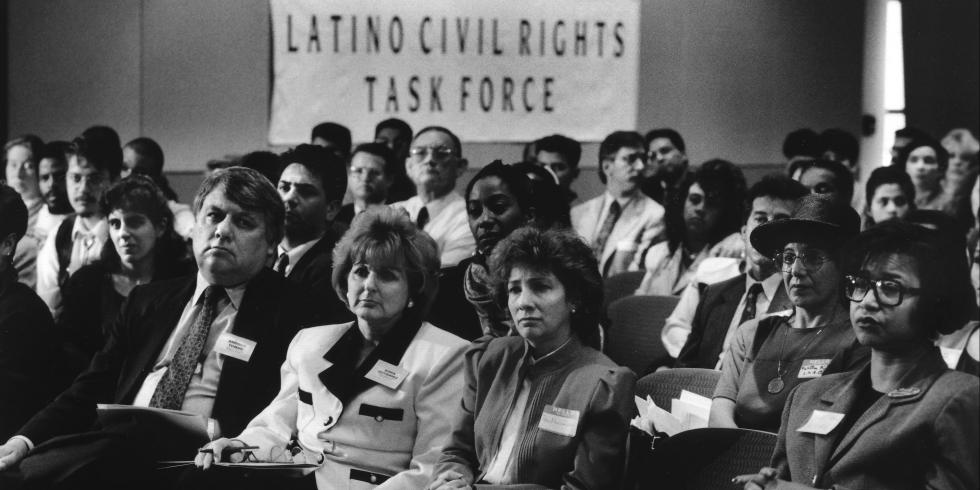The fight for Latino civil rights has been ongoing for many years. Many of the civil rights struggles that began in the 20th century were inspired by the uprisings, heroism, and resilience of Indigenous and African peoples who were forced to live under the injustices of colonial control beginning in the 15th century.
Learn more about the early history of the Latino community.
The Latino civil rights movement grew throughout the 1900s, often in parallel to others like the African American civil rights movement. Inspired by fellow activists and important milestones, such as the founding of the League of United Latin American Citizens (LULAC) in 1929, the movement grew in the 1960s with the increase of grassroots organizations and the energy of many youth activists.
From fighting segregation in schools to participating in strikes and boycotts to demand better living and working conditions, the Latino community has made great strides in the fight for equality. However, the fight remains ongoing. Despite now being the largest minority group and representing about 19 percent of the population of the United States, Latinas and Latinos still battle issues like immigration, education, healthcare, housing, and voting rights. Through continued activism and leadership of past and present civil rights champions, the fight for equality goes on.
Chicano Civil Rights Movement
In the 1960s, the efforts of Mexican Americans to fight for civil equality became known as the Chicano Civil Rights Movement. Throughout the Chicano Civil Rights Movement, many groups of people came together to advance social justice, including artists, teachers, students, and journalists. During this time, leaders like Cesar Chavez and Dolores Huerta were among the strong voices in the fight for better wages and working conditions for Latinas and Latinos in the United States.
Chavez was an advocate for social change as he broke boundaries in the agriculture industry as a leader of one of the first successful labor unions of farm workers in American history. In 1962, Chavez founded the National Farm Workers Association with Huerta, which emerged from a collaboration with Filipino American farmworkers. The organization later merged with other unions to become the United Farm Workers of America.
Huerta became a Latina civil rights icon as she led boycotts, strikes, and marches in the fight for justice. She has dedicated much of her life to advocating for civil rights and served as United Farm Workers of America vice president until 1999. She is famous for coining “Si se puede!” (Yes we can!), which has become one of the most recognizable slogans and has inspired many civil rights causes.
Advocacy Organizations
Over the years, the Latino Civil Rights movement has brought many great advocacy organizations and events that have made pivotal contributions to the quest for equality and shaped the civil rights landscape in the United States. These key organizations, figures, and events include:
- League of United Latin American Citizens (LULAC) – One of the oldest Latino civil rights organizations in the United States, LULAC was founded in 1929 in Corpus Christi, Texas. The organization has been a pioneer in the fight to promote Latino equality across the nation.
- National Council of La Raza – Now known as UnidosUS, the National Council of La Raza is one of the United States' largest Latino nonprofit advocacy organizations. Founded in 1968, the organization has worked to elevate Latino voices across the country.
- Mexican American Legal Defense and Education Fund (MALDEF) – Founded in 1968, MALDEF is a leading Latino legal advocacy group that pushes for equitable practices at local, state, and federal levels.
- Puerto Rican Legal Defense & Education Fund – Now called LatinoJustice PRLDEF, the organization was founded in 1972 and works to create a more just and equitable society.
